The meteoric rise of the female tech boss
- Published
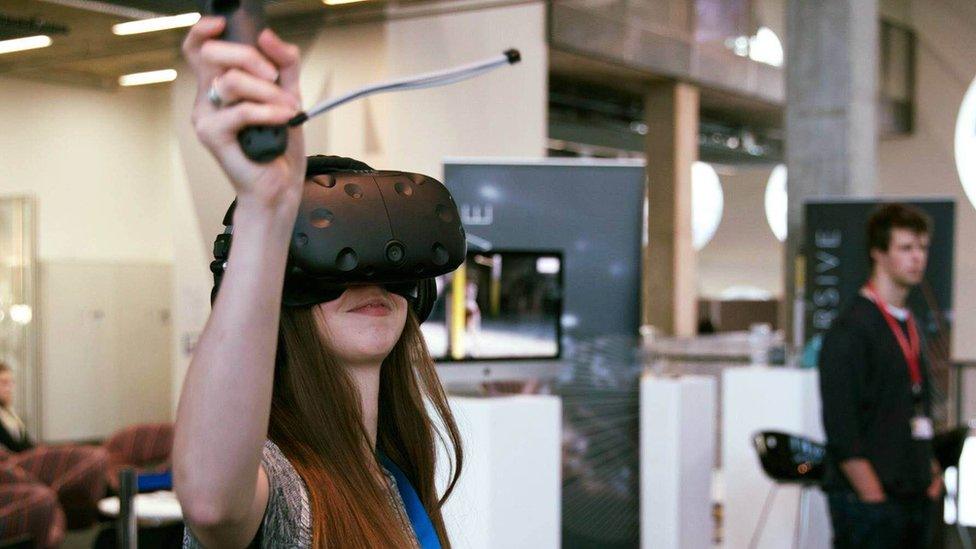
Samantha putting a virtual reality game to the test
Samantha Kingston fell into the video games industry by accident - but her rise has been meteoric.
Two years ago she had a marketing job at a community theatre when a recruitment consultant approached her, and asked whether she had ever considered a career in gaming.
"I said 'no, never thought about it, not interested'," says the 25-year-old.
"Then they said 'there's this really cool job that's come up, maybe you should go for it'."
That job was a social media role at a games developer called N Dreams.
Based in Farnborough, in the south of England, the company specialises in games for virtual reality (VR) headsets. These are games in which the player enters a simulated environment.
Samantha admits she knew next to nothing about this at the time.
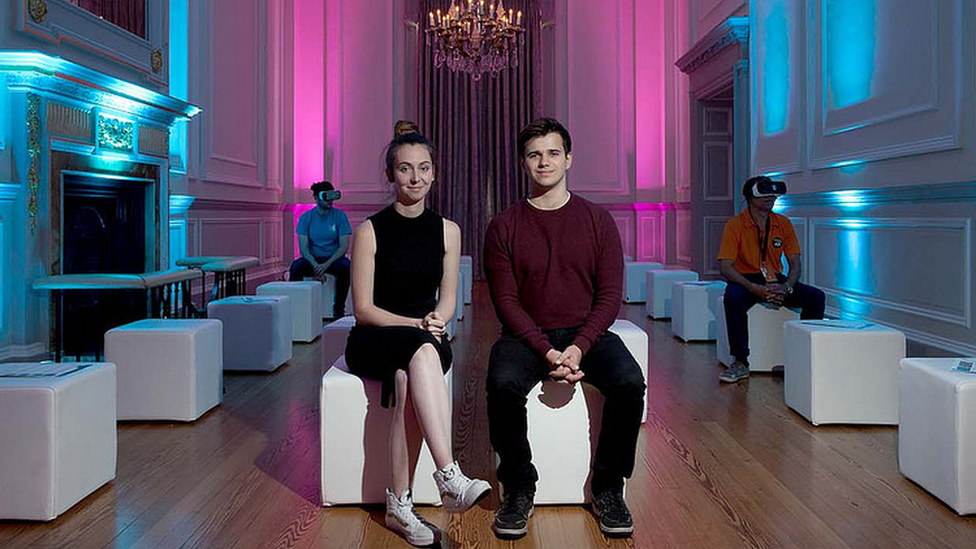
Samantha Kingston co-founded Virtual Umbrella with friend Bertie Millis
"I thought, I'm just going to go in there and be really honest, and say I don't know anything about games."
However, she says she was immediately hooked.
"I went in and was introduced to the technology - and I just thought, yes, this is exactly what I want to do.
"The CEO wasn't too fussed that I didn't know much about games. He said, 'do you want to learn this tech with me?' and I said 'yes, that would be amazing'."
Today Samantha is an award-winning businesswoman who runs her own successful VR business called Virtual Umbrella. And she describes herself as an "evangelist" for the technology.
'Learned by ourselves'
Samantha spent just nine months at nDreams, but learnt enough about VR to feel confident to leave and set up her own business in March of last year with her friend and business partner Bertie Millis.
Based in Southampton and London, Virtual Umbrella describes itself as a marketing agency that specialises in VR.
What it does is work with clients such as Nokia to help them develop and promote their VR content.
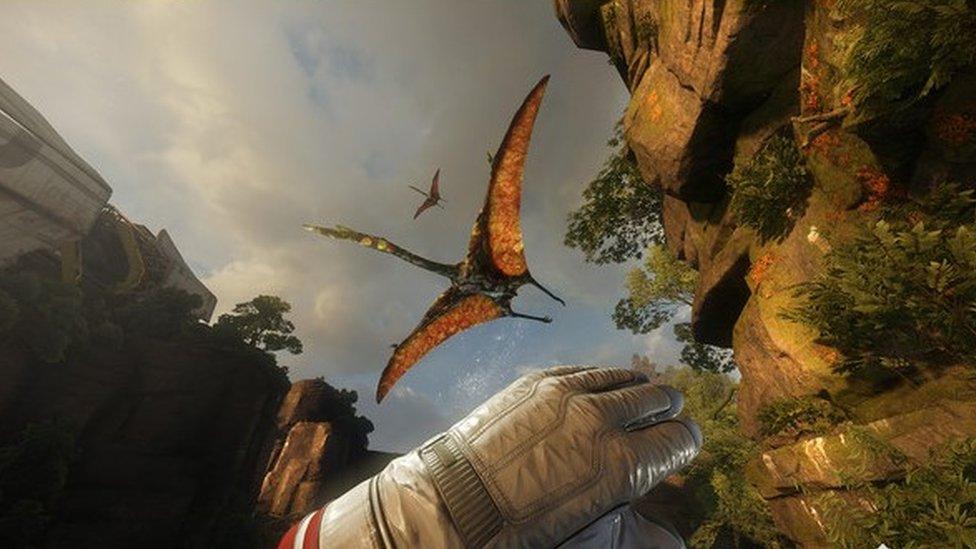
Samantha Kingston cites Crytek's Dinosaur Island games as examples of stunning VR
Samantha admits that getting the self-funded business off the ground was tough.
"We have learned everything by ourselves, and not really had much help," she says.
"There's no bible out there that tells you how to run a business, so it's been a lot of giving it a go, learning your lessons from the bad things you shouldn't do."
For anyone else looking to start their own company, Samantha has a list of advice.
"Learn how to do your taxes, have a good accountant, keep your receipts, always take advice, especially from others running companies," she says.
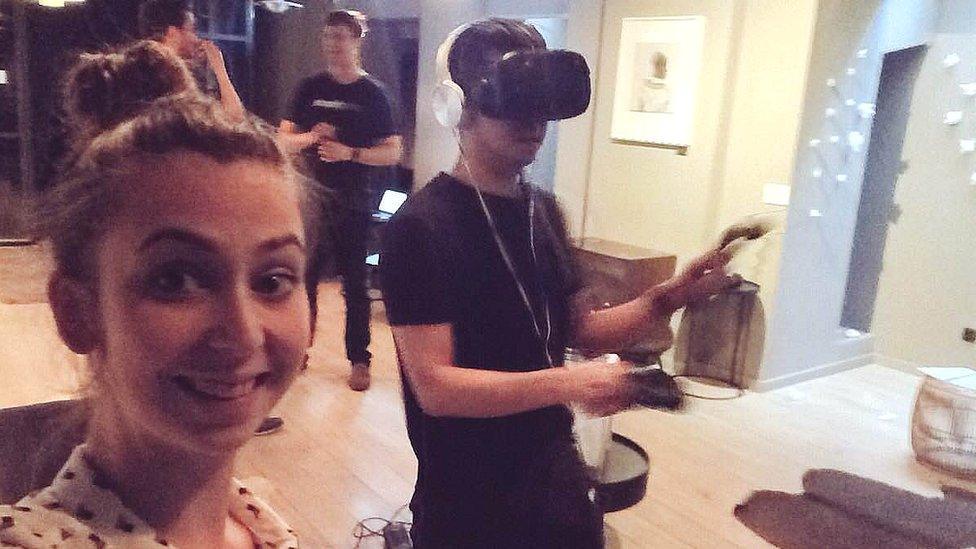
Another world: running a VR demo
As VR is such a new market, Samantha says that a lot of her work is currently educational.
"Lots of big advertising agencies want to know how it works, what they can do with it - their clients want VR content," she says.
"VR to me is putting yourself into another world - putting on a headset and being in a completely different space.
"It can be somewhere you can walk around in, interact with or just look at. Putting yourself somewhere completely different while you are sitting in your kitchen or classroom."
And is not just about gaming, as Samantha adds that healthcare and travel companies are also keen to explore the benefits of VR with her firm.
'All about the talent'
As a woman in a male dominated industry, Samantha says she has experienced some sexism, and is quick to respond.
"I didn't even know it was a problem before I joined the industry," she says.
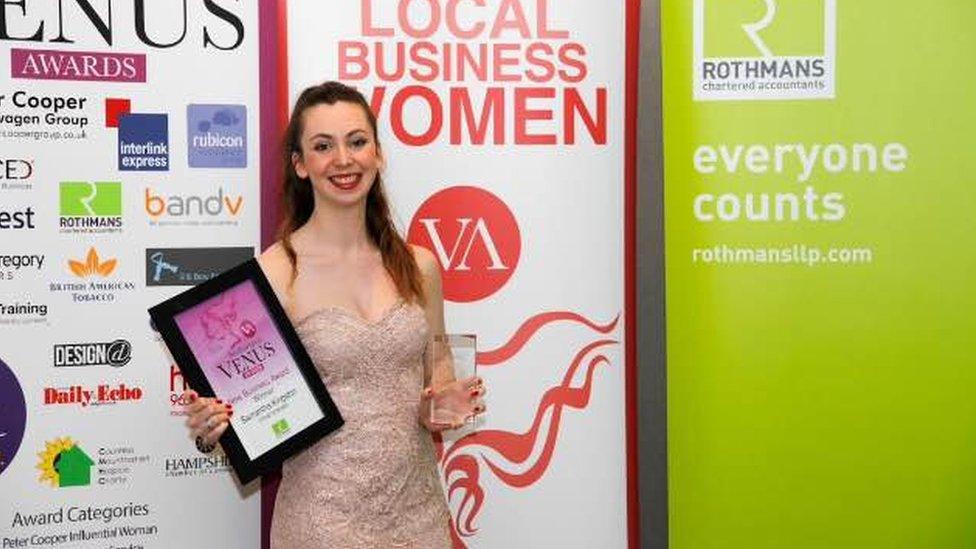
Samantha has already won awards for her work at Virtual Umbrella
Recently she tweeted "yup, this girl is perfectly capable", after she overheard a man mutter about whether "a girl" could possibly have set up her demonstration at a digital festival.
But when it comes to hiring staff, Samantha says she doesn't focus on a person's gender.
"I will support women as much as possible and I do that in the industry… but I'm all about the talent. I've never said I want to work with women or men," she says.
"I want to work with people who are good at what they do."
Looking ahead, Samantha says the big thing for VR will be when it cracks the mainstream consumer market.
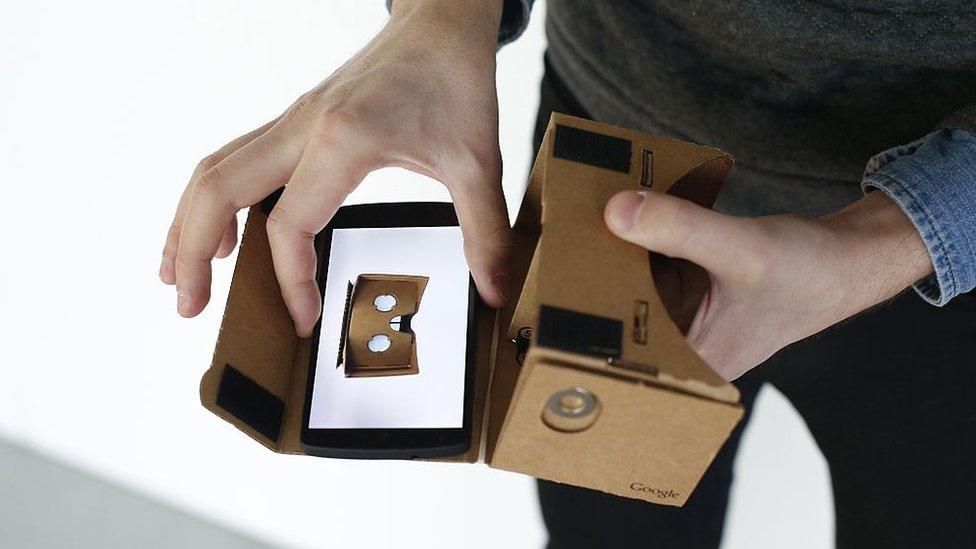
You can now pick up a VR headset relatively cheaply
She says this is possible due to the increased availability of low cost headsets to which you attach your mobile phone. These now cost as little as £15.
"Everyone has a mobile phone," she says. "The technology is advancing so quickly, and all the phone companies are backing it".
For now, the top-of-the-range VR devices are not only expensive but also reliant on being plugged in to high-powered PCs. But the industry may one day get a boost from cloud gaming, where the processing is done in data centres, meaning less powerful, cheaper equipment would be needed in the home.
Matt Desmier, founder of Silicon Beach, the annual technology industry gathering in Bournemouth on England's south coast, says "Samantha's enthusiasm is contagious".
He adds that while Virtual Umbrella is only 15 months old, it is "infectiously passionate".
But despite the current buzz around VR, could it be just a short-lived craze?
Samantha says: "There are a lot of people saying 'Oh, it's a fad', and I get that, because it's happened before, but we are in a really good position with the technology, phones have really advanced it."